Action & Psychodrama
I’m working on a handout on action for a Psychodramatic Couple Therapy Training event in September. Psychodrama is sometimes mistakenly called an “action method”. That might mean people move about. That they exhibit behaviour. The real question is: are they actors? That is, agents in their own life!
The action includes: the body, emotions, thinking, the breath, the spirit, the soul, the chi, life energy, prana. In psychodrama language that is spontaneity-creativity.
Here are two quotes:
The organism-in-environment is a behavioral system; the actor in situ is an actorial system, and, Moreno (1953b) states, it is important to distinguish between the two. A collectivity of actors is a different entity from a collectivity of organisms and has a different meaning.
Warner (1954) points out that from Moreno’s perspective, when one tries to understand behavior by separating an action into components, as the psychologist does, one ends up ignoring the most important characteristics of human behavior, social interaction. Acts, actions, and interactions are complex behaviors that are intended to gain a desired goal. They occur within a cultural context. There is a reciprocal relationship between the members of a group and the group’s culture. On the one hand, it is the actions of the members that create the culture of the group and on the other hand the culture of the group shapes the actions of its members.
Meyer writes, “The heart of Dr. Moreno’s sociometric method is action. Time and again in the writings of this book and elsewhere, he insists that sociometric methods require that individuals cease to be subjects for research, patients in the clinic, or objects of reform. They must become participants” (1952, p. 360). Sociometric research, Moreno insisted, is for the benefit of the people involved, not for the benefit of the researcher. Therefore, the subjects should be included in the design of the research, in the selection of criteria, for example. Sociometry should take place in life, in the real situation of the individuals, not in the
laboratory of the scientist. Unless the sociometric experiment includes an activity in which the group members partake, it is, at best, “near sociometric.” Sociometry is an action method.
John Nolte
It is worth meditating on the words of Moreno — especially how they might apply to couples.
An action matrix registers acts and events . A behavior matrix registers “observations” of acts and events . The actor must become an observer of himself and an actor towards the observer, i.e ., the observer must become an actor towards the observed and an observer of himself ; one must co-act with the other, a meeting is taking place . In an ongoing socio-psychodrama the subjective view of the actor and the objective view of the co-actor are one, they are on the same plane . Indeed, as … auxiliary egos to each other on the plane of action the degree of their reciprocal subjectivities and objectivities are continuously in a process of mixture; A acts towards B, B acts towards A; A observes self and acts towards B, B observes self and acts towards A ; A observes A, B observes B ; A observes A and B, B observes B and A ; A acts towards C, A acts towards B and C, C acts towards B and A, etc . A genuine theory of action and actors deals with actorial categories and interaction potentials like spontaneity, creativity, the warm up, the moment, the meeting, … auxiliary ego and other categories which express the coexperiential level of an actor’s world on the level of action .
Moreno “Who Shall Survive?” p74
Some notes about Action & couple therapy
How does work when we are working with the relationship? The “third entity”?
Not “male female” but role systems — unity of opposites unity and opposites.
The protagonist will transform the and the auxiliary will transform
Action is to do with being actors — active participants.
If there is ambivalence about the relationship — Discernment therapy.
Individuation is always needed
Slavoj Žižek, Quantum and Dialectics
“The idea that knowing changes reality is what quantum physics shares with both psychoanalysis (for which interpretation has effects in the real) and historical materialism”.
Slavoj Žižek – quoted on Redit
This is a great little paragraph!
*

A useful read!!
*
I wish they had an inkling of Moreno in these discussions — psychodrama fits in more tightly than “psychoanalysis.”
*
Interesting the extent to which Bohm was influenced by dialectical materialism:
“In this way Bohm understood it as idealistic. In Bohm’s interpretation, however, the particle possesses at all times a well-defined position and momentum regardless of observation or associating ideas. So, in Bohm’s view, matter came before mind in his theory. Thus he called his interpretation a materialistic one.4 With this materialist interpretation, Bohm wanted to expel mysticism from physics.”
Christian Forstner
Dialectical Materialism and the Construction of a New Quantum Theory: David Joseph Bohm, 1917–1992
Discernment Counseling with Rachel Zamore

Sometimes couples aren’t sure whether they are ready to work on their relationship or not. When this happens it isn’t appropriate to do traditional couples therapy until both partners buy in to the process of therapy. Rachel Zamore gives us a closer look at how to work with these mixed agenda couples using Discernment Counseling.
Discernment counselling is a crucial perspective on couple therapy. If a couple or one partner is ambivalent – it is so important not to leap into working on the relationship.
In my work each partner gets a summer of the individual session I had with the other. Those summaries are reframed without blame and they facilitate a process of clarity.
Will they:
Agree to couple therapy for 6 months?
Separare?
Continue with the status quo?
“Between” should not vanish into a “within”.
Talking about Moreno’s approach German sociologist Leopold Von Wiese, (1949) said:
“the realm of subjectivity is never given up by him. But the use of the word subjective here should not imply that Moreno is limited in his studies by a personal involvement; it is just the opposite. His aim is directed towards the most exact objectification of observations; but the object of these operations is the realm of the human psyche exclusively. This is so perhaps because he is a psychiatrist, a practical psychologist and physician. We too, in our “system of relations” do not neglect the psychological processes; but their penetration is one of several tasks so that we can recognize that realm of existence which. is crucial; the social one which lies between men and not within them. Particularly when one, as Moreno, like ourselves, emphasizes the significance of the little word “between” one should not permit it to vanish into a “within”.”
I like this as a formulation of the relational paradigm.
More on this theme from Von Wiese:
“When we try to reproduce here the chief content of Moreno’s work, we may best start With a statement from White’s foreword to it, one Which is also an axiom of our system of relations: “Social groups are not a sum of individuals but a sum of relations which exist between them”.
Which makes them complex beyond imagination.
Von Wiese, Leopold. (1949). “Sociometry.” Sociometry, Vol. 12, No. 1/3 (Feb. — Aug, 1949), pp. 202—214 Published by: American Sociological Association https://www.jstor.org/stable/2785387
Four Horsemen
Shane Birkel interviews Laura Heck – Gottman approach
I’m listening to Shane Birkel interview Laura Heck.
017: Using Gottman Interventions to Enhance Intimacy with Laura Heck
[You can listen to all Shane’s podcasts on your phone if you have a podcast app. Search forThe Couple Therapists Couch. I use Pocket Casts.]
I wanted to jot down some bullet points so thought – blog, why not.
Continue reading “Shane Birkel interviews Laura Heck – Gottman approach”
Elliott Connie – Goals and Outcomes video
I found this video by Elliott Connie useful! Elliott is a Solution Focussed Couple therapist.
Bud, a psychodrama colleague recommended the video, on Shane Birkel’s Facebook page.
Here a a bit of Bud’s summary:
… the vital importance of the difference between a goal for therapy and a desired outcome. He discuses it in the context of working with a couple who appeared to have mutually opposing or exclusive goals.
What a simple idea, and perhaps something we already know in an illusive way. Elliott’s teaching and examples in the video are just excellent.
$1,000,000 = Goal
Peace of mind = Outcome
*
Gets me thinking… he is showing us an example of assisting people to deeper into their being and sharing more. I like the SF questions.
I wonder if couples themselves using the universal space opening question: “Is there more?” would go from the goal to the outcome?
That way couple can do their own deep listening, with one question: Is there more?
This can be done – partner to partner. If they succeed they may get more confidence and hope for their relationship.
If they don’t… it is good for the therapist to have SFT at the ready.
*
Do watch & listen to the video!
Listen to the Marriage: A Novel – by John Jay Osborn
Amazon
I love this book! ★ ★ ★ ★ ★
Probably because I’m possessed by all things couple therapy. Though because of that i’d hate it if it was terrible therapy. Most of the therapy in movies is bad. Books are not much better. This one surprises!
I love the bit where a client is about to walk out, and the therapist says “Sit down!”. Sounds terrible, but it’s perfectly timed, authentic, edgy for the therapist, and good for the client as it turns out.
I’m still puzzling how a law professor could write a book with such grasp on the art of therapy.
Get this book if you are interested in relationships!
Later: Sunday, 11 November 2018

A wonderful interview with John Jay Osborn.
The link is to Pocket casts – a great app for iPhone – but I’m sure you can find other ways to listen to it.
A remarkable book and writer! And a good interviewer.
Therapeutic Village
Podcast — Audio
US inmate advocate Ann Jacobs on RNZ – talking about prisoners. Note the post-prison care gap!
As I listen to this interview I was glad to have the proposal and petition for the Therapeutic Village online. I’m determined it will happen! Listen and notice how the Village idea fills the gap.
This is a link to the submission: The Therapeutic Village
There is also a petition on OurActionStation that will be delivered to the Government and again to the Inquiry at the end of November 2018
Please sign and spread the word.
Psychodramatic Couple Therapy Training
Just created version another version of the Outline for the course. Here is the link to the whole document and then some excerpts:
PCT Training – current version
About Psychodramatic Couple Therapy Training
EFT, RLT and another perspective – Encounter
I’ve just listened to this episode of The Couples Therapists Couch
In this episode, Emotionally Focused Therapist, Figs O’Sullivan, conceptualizes a case from the standpoint of working from the EFT perspective. Relational Life Therapist, Shane Birkel, talks about how an RLT therapist would work with the same couple. Figs and Shane talk through some of the similarities and differences in the two approaches and how they view couples cases that come in for therapy.
I’m immediately drawn to the conversation, and want to participate. I appreciate the value systems in both models.
Continue reading “EFT, RLT and another perspective – Encounter”
The Survival Dance that gets in the way of the Encounter
We flee or fight to avoid pain. In psychodrama we call those ways of being the coping roles. The path to the progressive, being fully alive, is to be with the vulnerability of the pain and attend to it. This can’t really be done alone, yet no-one can do it for you.
This is a universal idea and present in many modalities.
*
The title of this post comes from Hedy Schleifer’s ECcT – Encounter Centred Couple Therapy. On her website she says:
“I want them to leave knowing that the “survival dance’ that they have been dancing for such a long time is “not’ who they are in their essence.”
Continue reading “The Survival Dance that gets in the way of the Encounter”
The American President – (Movie)
The Hero’s Journey Podcast‘s next effort will be The American President. I’ll watch it and make notes here, hopefully *before* they do the podcast. Watch this space.
This is the guide I use while watching:
Wednesday, 28 February, 2018
I’ve seen the movie and I’ve made some notes. I’m a bit sloppy as I did not like the movie that much.
Ordinary World
Day to day in th Presidents world – his life. His colleagues. The lobbyists. His daughter, dutiful dad.
Then there is a bit of a build up to election stuff – but that is ordiary for the President.
There is a call for the president to do the right environmental thing… he sort of refuses.
Then the soppsed “pitbull” comes on the scene Sydney Ellen Wade. The is on for an adventure and a fight for the environment.
But these are not the calls.
The call to Adventure
The call is that they fall in love. Well Pres. Shepherd falls in love and there is no refusal in sight… For a while. He pursues with gusto.. And she accepts his calls – litterally and as a hero. Both have ftiends alleies and enamies.
Love is the special world and they fall over the threshhold despite the threshold guardians each have. Is the dancing the moment they are truly in? Or the kiss?. Earlier really as the first whif of romance is in the air. So much for the pitbull.
Refusals
Then there is his refusal – he opts for the crime bill and not the environment. This cop out is also one where he refuses love. And his refusal here is matched by hers. “You have lost more than me, you have lost my vote.”
Seizing the Sword
But then in a speech to the world he accepts the call – the environment, even if he might not win her back. But she flies back faster than a speeding bullet. the adventure has gone on for a while so this might be more the seising of the sword.
He finally gets her roses and the elixer is true love prevails
And a big nod to liberal values.
Relationships, Romance and who is the protagonist?
I think they are both heroes, or maybe love is the protagonist. The trouble is that he is the main hero… He has all the power, it is a patriachal story. How might this have played out if it was not partiarchal? The relationship being the protagonist and each of them having a hero’s journey fully matched? It would be nice to speculate. Could it even be a romantic commedy then? I hope a much better one.
Are there any such dramas?
Reflecting on this it is clear that there are three elements in any relationship – each of the lovers, and the relationship. Each has a full life, i.e. the dramatic circle of the hero’s journey. Relationships are not 50/50. They are produced many 100% moments. How well can that be portrayed?
This question of how to put a relationship on the stage is a burning question for me!
Relational paradigm – Bruce and Francine
I think they nail it here:
“Imago shifts the focus from the self to the relationship and posits “relationship” as fundamental reality of which individuals are derivatives. To embody this paradigm shift, partners must shift their focus from their own need gratification to the needs of the relationship. The paradoxical outcome of that counter-intuitive shift is that such a sacrifice will insure the satisfaction of their needs in a way that was not possible when the focus was on the self. When the couple becomes partners rather than opponents in the project of creating and enacting their dream relationship, they create a thriving relationship. This perspective rests on the assumption that human beings are intrinsically relational, that the human problem is relational rupture, that all emotional symptoms are expressions of relational anxiety and that relational repair is the only and sufficient path to human well being.”
Beauvoir, Francine; Crapuchettes, Bruce. Getting Back The Love We Had: Forty-Two Answers To Real Questions From Couples Who Feared They Were Losing Their Way (pp. 4-5). Kindle Edition.
Astonishing matrimonial psychodramas
The concept of medial understanding was the forerunner of what I call today co-conscious and co-unconscious states. Such a technique of reciprocal comprehension and “interpersonal memory” seemed to make possible astonishing matrimonial psychodramas, husband and wife reaching back into their first encounter and reliving, often with astonishing detail, all their moments of love and suffering, their silent tragedies and their moments of great decision
(Moreno, 1923).
Just how to produce such dramas remains somewhat obscure to me. Will experiment – and research!
The quote above is from this article by JL “Interpersonal Therapy and Co-Unconscious States, A Progress Report in Psychodramatic Theory” originally from: Group Psychotherapy, 14 (3-4), 234-241 (Sept-Dec., 1961) See PDF below.
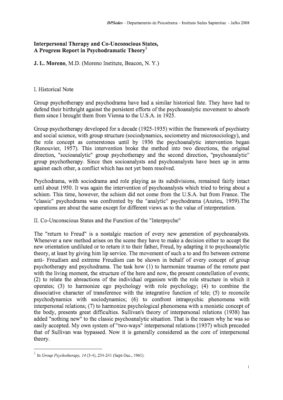
Marriage and family therapy – Inter-psyche
Here is a quote from Moreno that has major implications for how we conduct psychodrama in groups or with individuals when they want to work on significant relationships and the other party is not present.
And the other question that flows on from this piece of wisdom from JL is how to do “re-enactment a deux”. The phrase ‘psychodrama a deux’ when I have heard it come up has referred to doing psychodramatic psychotherapy with an individual. This is different. Couple therapy using psychodramatic processes is something that some of us have well developed. What about working with a couple when both are present in a psychodrama group?
I have been exploring that question in practice.
What about when someone does a drama involving an intimate other who is not there?
What if a couple are in crisis? Do we recommend they attend a psychodrama group?
These are questions I will be addressing in a workshop at the AANZPA conference in Brisbane in January. ‘Addressing’ here means exploring in action with colleagues.
Even a Genius of Perception Can’t Role Reverse with an Intimate Partner
Yes, Moreno said something like that. In this this group we’ll produce dramas involving intimate relationships. Enactments will be followed by sharing and reflection on working with intimacy. Five principles for working with psychodrama and intimate relationships will be presented.
Moreno:
Marriage and family therapy for instance, has to be so conducted that the “interpsyche” of the entire group is re-enacted so that all their tele-relations, their co-conscious and co-unconscious states are brought to life. Co-conscious and co-unconscious states are by definition such states which the partners have experienced and produced jointly and which can therefore be only jointly reproduced or re-enacted. A co-conscious or a co-unconscious state can not be the property of one individual only. It is always a common property and cannot be reproduced but by a combined effort. If a re-enactment of such co-conscious or co-unconscious state is desired or necessary, that re-enactment has to take place with the help of all partners involved in the episode. The logical method of such re-enactment a deux is psychodrama. However great a genius of perception one partner of the ensemble might have, he or she can not produce that episode alone because they have in common their co-conscious and co-unconscious states which are the matrix from which they drew their inspiration and knowledge.
Psychodrama Volume 1, 4th edition, page vii
Later — Friday, 22 December, 2017
Just noticed this quote from Marshall Rosenberg, here:
It may be most difficult to empathize with those we are closest to.
Moreno was not alone in noticing this phenomena
Who we are
This is my summary of what Moreno means by the social atom. In psychotherapy that “atom” or pattern is the client. When two of these “patterns” connect in love, then a lifelong process can follow. Maybe it is true love at first sight? Unlikely, love is blind. One possibility is to move from blind love to deep mature connection. The other possibility is hell. A third is lifeless boredom.
What is Psychodrama?
Psychodrama is a form of therapy. Jacob Levi Moreno founded the the early forms of the philosophy and practice in Vienna early in the last century. On page one of his seminal book: “Who Shall Survive?” he wrote about a therapeutic procedure.
Clearly a therapeutic procedure that has as its objective the whole of humankind stands out as a special case of psychotherapy. Psychodrama is a special case…
Continue reading “What is Psychodrama?”
Psychodrama Workshops 2018
I’m delighted to have plans and dates for a bunch of psychodrama events next year. I hope you will find something of interest!
Psychodrama Weekends with Walter Logeman – Christchurch
Fri, 13 – Sun, 15 April
Fri, 31 August – Sun, 2 September
Experience psychodrama for your personal development!
Download flyer and enrolment details
Writing Retreat Mt Lyford – for Psychodrama Trainees
Fri, 25 – Sun 27 May
Writing is an essential part of psychodrama training.
Download flyer Enrol: http://psychodrama.org.nz/citp-2018c
Working With Couples – Professional Development – Christchurch
Christchurch Fri, 6 – Sun, 8 July 2018
This workshop will enrich your work with couples. Also a good way to get started.
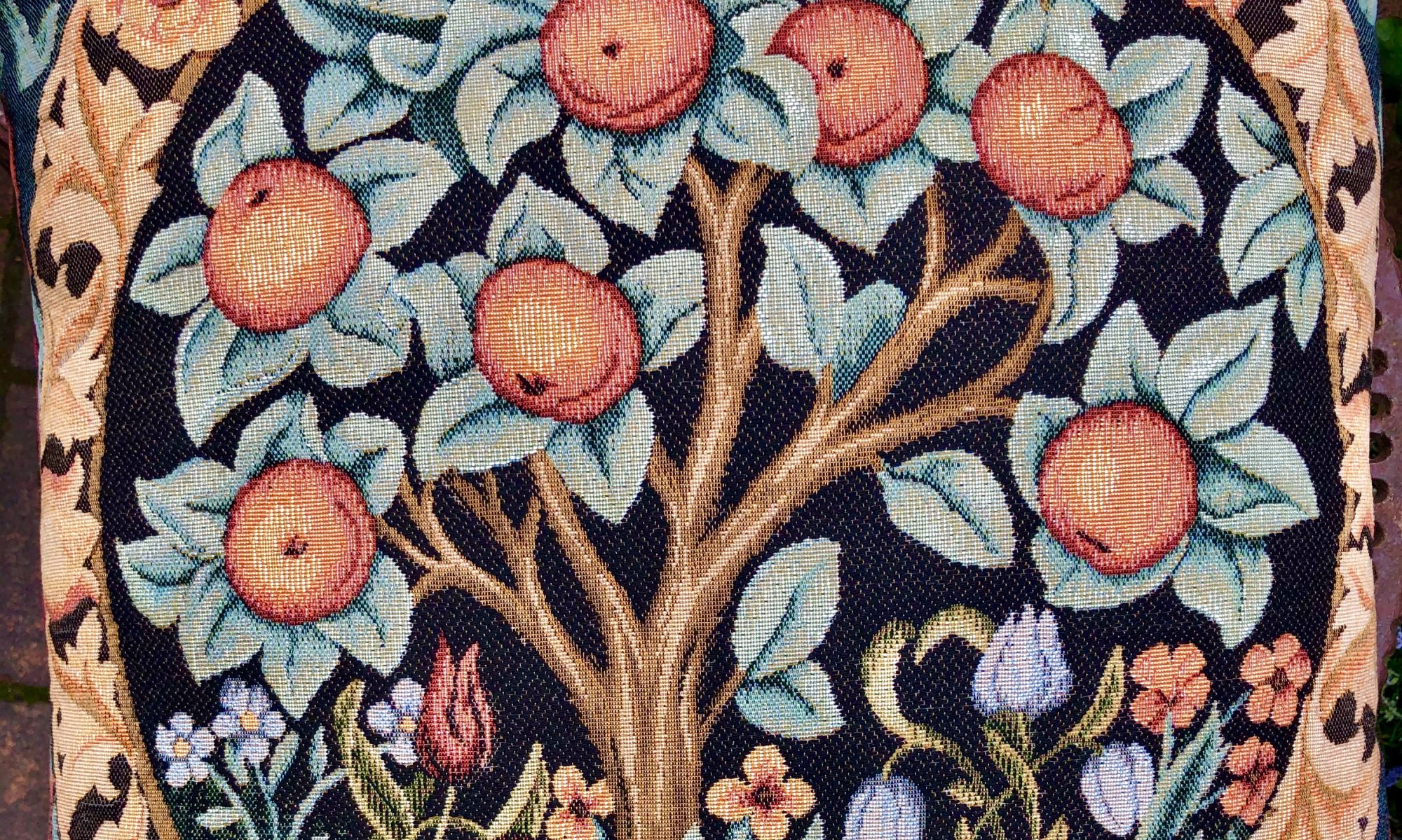

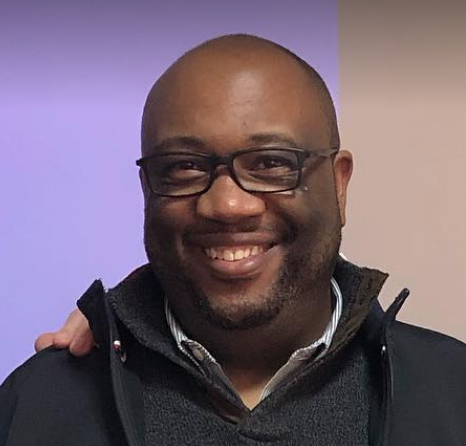

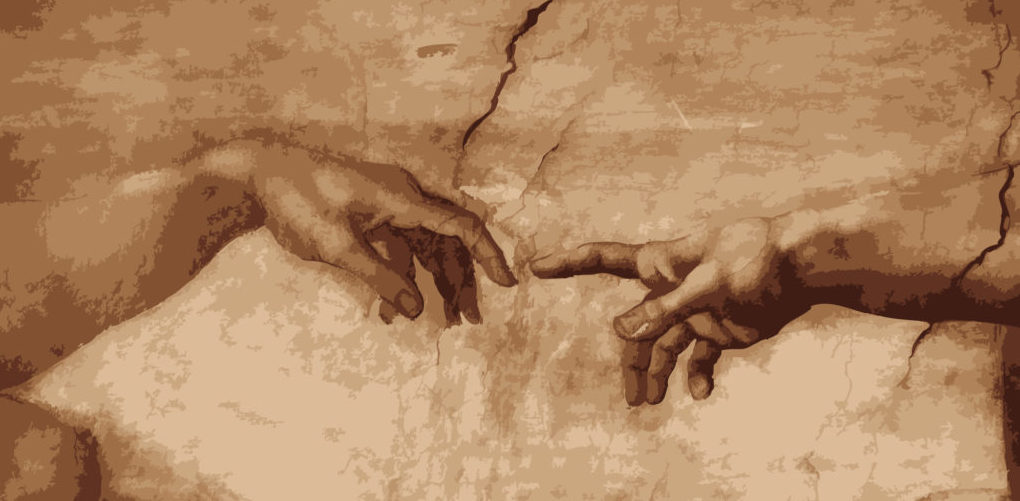


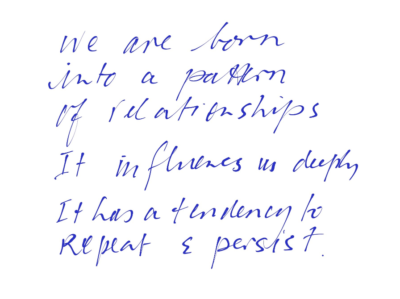
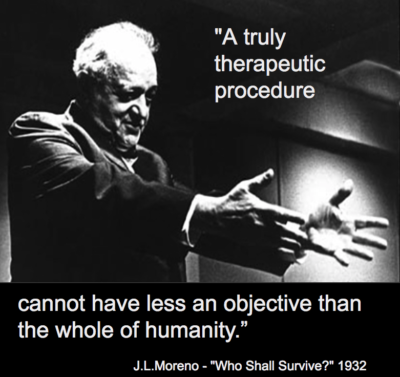
You must be logged in to post a comment.